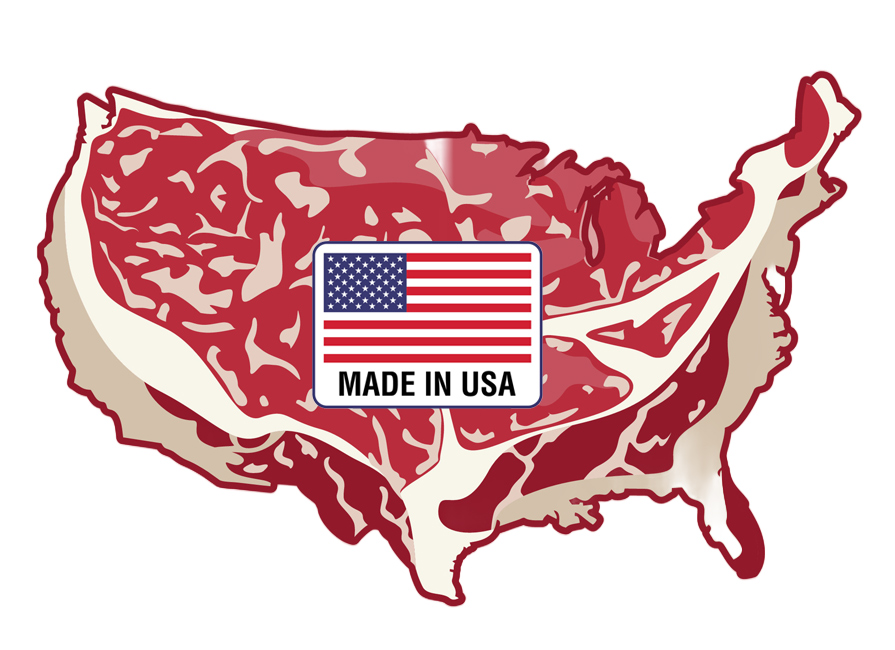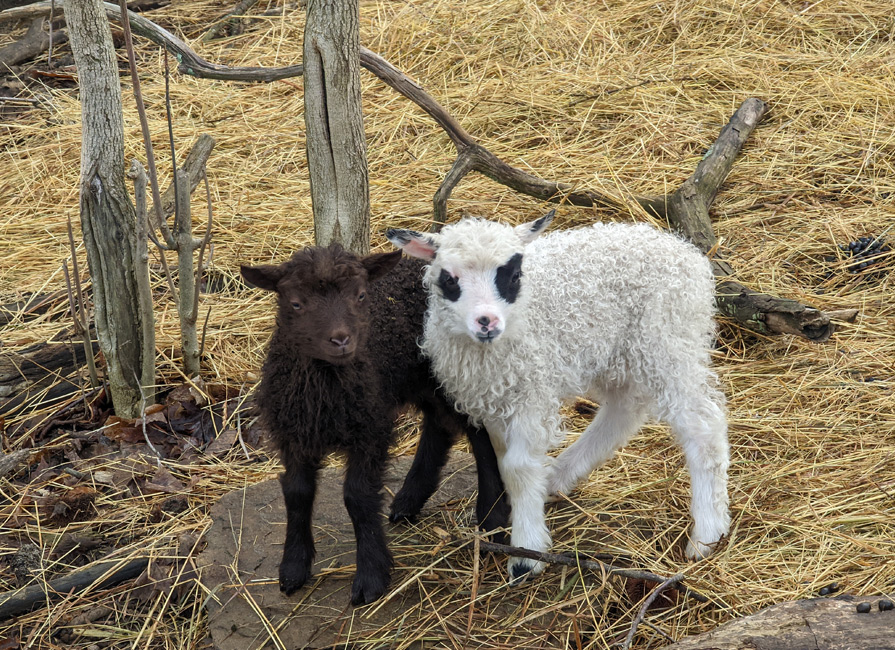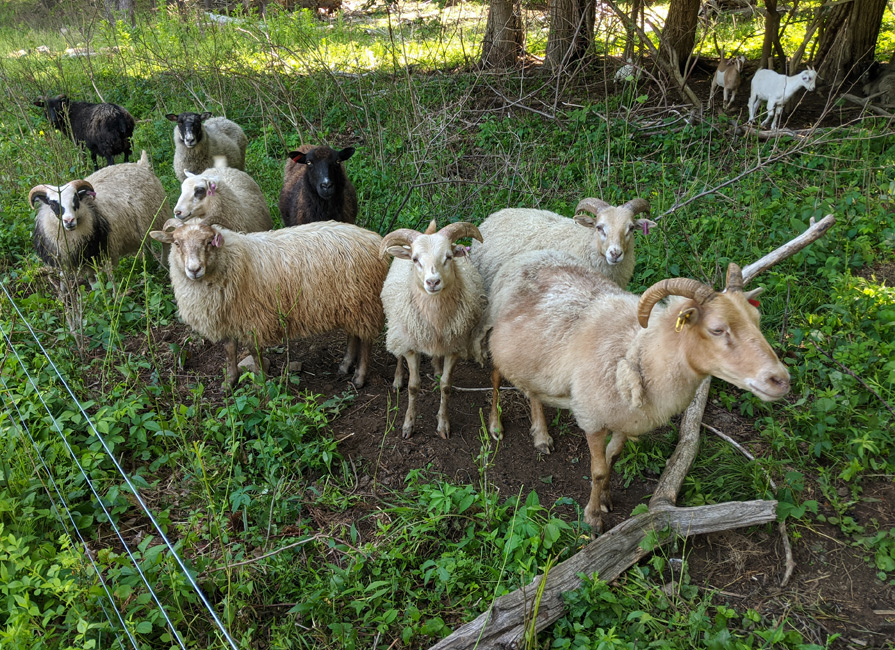In today's increasingly food-conscious world, consumers expect a label to mean what it says—including the…
UK Soil Association Calls for End of Routine Antibiotic Use–MRSA Found on British Farms
 The Soil Association published this news report today calling for the end of routine use of antibiotics in dairy farming.
The Soil Association published this news report today calling for the end of routine use of antibiotics in dairy farming.
Following a study published today on the discovery of MRSA in British milk, the Soil Association is calling for the end of routine antibiotic use in dairy farming.
A new type of MRSA bacteria was discovered by scientists from Cambridge University in samples of milk taken from cows with mastitis [1]. This is the first time that MRSA has been found in farm animals in the UK.
Collaborating scientists from the Health Protection Agency and the Scottish MRSA Reference Laboratory, who have published their findings in the same paper, subsequently found that the same type of MRSA had already been the source of infection in a number of people in England and Scotland [2]. Evidence available so far suggests that the new MRSA is most likely being transmitted from cattle to people [3]. The scientists have called their discovery ‘potentially of public health importance’.
MRSA has emerged on dairy farms because of the routine use of antibiotics to deal with the health problems associated with the extremely high levels of milk being produced per cow.
Of particular concern is the use of antibiotics known as modern cephalosporins. These drugs are widely used on farms and are most strongly suspected of promoting MRSA in both humans and farm animals [4]. Scientists from Liverpool University have called for a ban on their use in dairy farming, saying there is ‘no welfare case’ for their use since they simply act as a ‘prop for sub-optimal management and welfare’ [5].
A Freedom of Information request submitted by the Soil Association to the Veterinary Medicines Directorate has revealed that the veterinary use of modern cephalosporins has more than quadrupled over the past decade, despite calls from the World Health Organisation, the European Medicines Agency and the former Chief Medical Officer, Sir Liam Donaldson, to restrict, or even ban their use on farms [4].
The principal reasons for the increase in use are that they have been widely advertised in the farming press (something not permitted in any other EU country), and dairy farmers have been under considerable financial pressure because supermarkets have driven down the farmgate price of milk to below the cost of production
The Soil Association has already severely restricted the use of modern cephalosporins and banned the routine use of all antibiotics on organic farms it certifies. It is calling for similar restrictions to apply on all dairy farms [6].
In several other European countries, new strains of MRSA have been found in pigs and poultry as well as cattle. Many humans have been infected by these new farm-animal strains, and there have even been some deaths [7]. British pigs appear so far to be free of MRSA, but no testing has been carried out on poultry despite the fact that the UK imports live poultry from countries known to have MRSA in their flocks.
The Soil Association is also calling for:
- The urgent introduction of a comprehensive programme to test farm animals, farm workers, veterinary surgeons, milk, meat and farm waste for MRSA [8]. This would bring the UK into line with several of our EU partners.
- The Government to review its decision to continue to allow advertising of antibiotics to farmers. The veterinary profession backed this view in a recent consultation – vets are in the best position to prescribe and should not be influenced by farmers or drug companies when it comes to safeguarding human health. [9]
Commenting on the research, Helen Browning OBE, Director of the Soil Association said:
“This new evidence confirms our long-held view of the importance of absolutely minimising the use of antibiotics especially those closely related to antibiotics used by people. This requires excellent husbandry, and much reduced stress on our animals.
“In the relentless drive for increased per animal productivity, and under acute price pressure, dairy systems are becoming ever more antibiotic dependent. We need to get farmers off this treadmill, even if that means that milk has to cost a few pennies more. That would be a very small price to pay for maintaining the efficacy of these life-saving drugs.”
For more detail read the Soil Association briefing sheet: ‘MRSA in British cattle. A new farm superbug spreading to humans?’
Notes:
[1] Garcia-Alvarez L. et al., 2011. Meticillin-resistant Staphylococcus aureus with a novel mecA homologue emerging in human and bovine populations in the UK and Denmark: a descriptive study, Lancet Infectious DiseasesFor further information on the findings, see sections 1 to 5 of accompanying Soil Association briefing sheet ‘MRSA in British cattle. A new farm superbug spreading to humans?’
[2] The new type of MRSA found in cows cannot be confirmed as being MRSA with existing laboratory tests. Consequently, the scientists had to develop a new test which proved that the bacteria were MRSA. The new test was then applied to bacteria previously collected from human patients and held in the HPA and the Scottish MRSA reference laboratory databases. The fact that the new type of MRSA can only be confirmed as MRSA with this new test means that is has probably been around for some time already without being detected.See sections 2, 3 and 4 of accompanying Soil Association briefing sheet.
[3] Transmission is most likely occurring through direct contact with farm animals, putting farm workers, vets and their families at risk, or through the environment (when manure is spread on the land, for example). Consuming pasteurised milk is unlikely to be a risk factor because pasteurisation will kill the MRSA.See section 5 of accompanying Soil Association briefing sheet for evidence that transmission is occurring from cattle to people.
[4] The modern cephalosporins are classified by the World Health Organisation as ‘critically important in human medicine’ because they are frontline drugs in hospitals and there is evidence that some of the resistance to them is being transmitted from farm animals to humans.For further information, see section 6 of accompanying Soil Association briefing sheet.
[5] Grove-White D. and Murray R., 2009. Use of antimicrobials, Veterinary Record, 164: 727See also section 7 of accompanying Soil Association briefing sheet.
[6] The Soil Association is not calling for a total ban on the veterinary use of modern cephalosporins. It believes that vets and farmers should be legally required to reserve them for life-threatening situations in individual large animals where the use of other treatments are unlikely to work, as is already the case for Soil Association-certified farmers. Such rules would probably have prevented the emergence of MRSA on dairy farms.For further information, see section 7 of accompanying Soil Association briefing sheet.
[7] See section 8 of accompanying Soil Association briefing sheet. [8] Since 2007, the Soil Association has repeatedly called for British farm animals to be tested for MRSA. Despite extensive surveillance in many other European countries, to date, the only tests that have been undertaken in the UK by government scientists have been on milk samples that we now know were incorrectly declared free of MRSA, and on dust samples from a number of buildings housing sows on pig farms, all of which were also declared negative. [9] The Soil Association, and other NGOs like Compassion in World Farming, the Food Ethics Council and Sustain, have consistently campaigned for a ban on the advertising of antibiotics directly to farmers. During a consultation last year, the British Veterinary Association joined the calls for a ban. After the consultation, the Veterinary Medicines Directorate recommended to the Government that a ban should be implemented, but the advice was rejected after lobbying against the ban by the pharmaceutical industry and the farming press.For further information on advertising, see section 6 of accompanying Soil Association briefing sheet.



